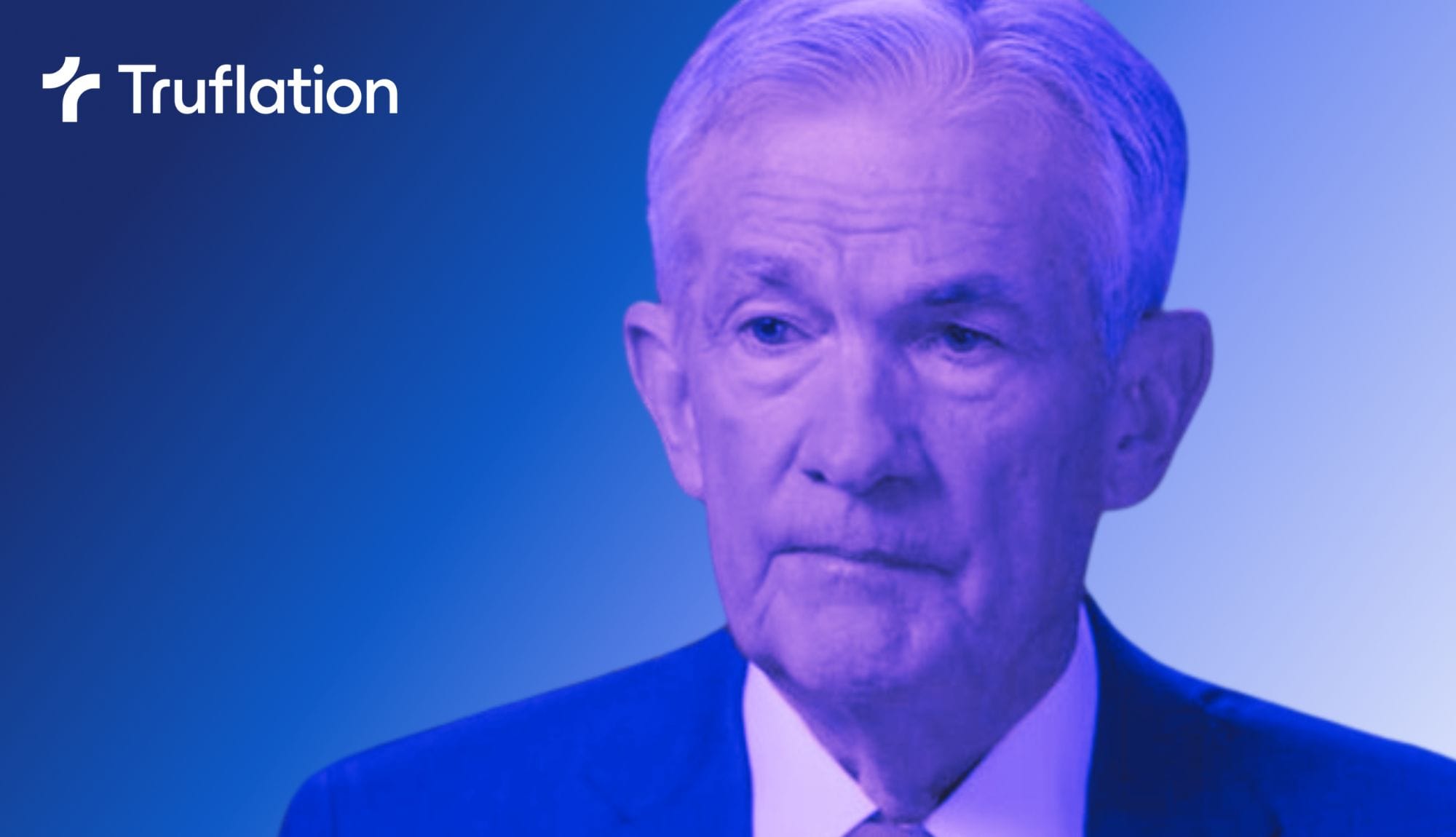Is Inflation Dead? Fed Chair Answers 60 Minutes

Long-running US television tabloid program 60 Minutes and its correspondent Scott Pelley interviewed Federal Reserve Chair Jerome Powell in the Board Room at the Federal Reserve headquarters this month.
Is inflation dead? Pelley asked Powell earnestly.
Refusing a possibly premature victory lap, Powell demurred, inflation has come down really over the past year, and fairly sharply over the past six months. We're making good progress. The job is not done and we're very much committed to making sure that we fully restore price stability for the benefit of the public.
Rate Cuts This Year
Pelley followed up quickly, You've avoided a recession. Why not cut the rates now?
After acknowledging the economy's relative strength, Powell cautioned, We just want some more confidence before we take that very important step of beginning to cut interest rates.
READ: Reckoning with the Fed's Higher-for-Longer Interest Rates
Powell revealed how almost every single person on the Federal Open Market Committee believes that it will be appropriate for us to reduce interest rates this year.
Not March
The Fed Chair did appear to rule out cuts for its next meeting, as, he told Pelley, it's not likely that this committee will reach that level of confidence in time for the March meeting, which is in seven weeks.
Pelley continued to press Powell for an indication of when the FOMC would be inclined to cut, but little light was shed beyond standard Fed boilerplate talking points.
Too Slow
Was the Fed too slow to recognize inflation in 2021? Pelley asked.
Powell admitted, So in hindsight, it would've been better to have tightened policy earlier, going-on to reference his now infamous line about inflation being 'transitory.' And that was very widely held. Not unanimously, very widely held view of economists around the world. And that the data were kind of friendly to that assessment, to that hypothesis, right up to the point when they weren't. And so in the fourth quarter of '21, it became clear that inflation was not transitory in the sense that I mentioned.
Explore Truflation’s indexes and data feeds!
Jerome Powell, of course, has been at the helm during a period of economic challenges, yet his leadership has not been without its critics.
Monetary Policy and Inflation
One of the primary criticisms directed at Powell's leadership revolves around the Federal Reserve's approach to monetary policy and inflation. Critics argue that Powell's commitment to keeping interest rates low and allowing inflation to overshoot the target is a risky strategy that could lead to long-term economic consequences. Some skeptics fear that this approach might fuel asset bubbles and create an environment prone to financial instability.
Handling of the COVID-19 Pandemic
While Powell received praise for the Federal Reserve's swift response to the economic fallout from the COVID-19 pandemic, there are critics who argue that the unconventional measures taken might have long-term consequences. The massive injection of liquidity into the financial system and the lowering of interest rates to near-zero levels have raised concerns about the potential for creating an environment of excessive risk-taking, leaving the economy vulnerable to future shocks.
Communication Challenges
Despite Powell's commitment to transparency, some critics argue that the communication strategy of the Federal Reserve under his leadership has been unclear and at times inconsistent. The messaging surrounding interest rate decisions and the Fed's overall strategy has left market participants and the public uncertain about the central bank's future moves. This lack of clarity, according to critics, contributes to market volatility and undermines the effectiveness of the Federal Reserve's policies.
Inequality Concerns
Another area of contention is the perceived lack of emphasis on addressing economic inequality. Critics argue that Powell's policies have disproportionately benefited financial markets and the wealthy, while the broader population continues to grapple with income disparities and limited access to economic opportunities. The concern is that the Fed's focus on stabilizing financial markets may exacerbate social and economic inequalities.
READ: US CPI Drops to 1.44%: Deflation Incoming?
Politics
Pelley pressed Powell about the 2024 presidential election and to what degree does politics determine your timing?
Powell insisted We do not consider politics in our decisions. We never do. And we never will. And I think the record – fortunately, the historical record really backs that up. People have gone back and looked. This is my fourth presidential election in the Fed, and it just doesn't come into our thinking, ...
Indeed, the role of the Federal Reserve Chair requires navigating a delicate balance between economic stewardship and political independence. Powell has found himself under scrutiny for his perceived closeness to the political class in Washington, raising questions about the potential influence of politics on the traditionally independent central bank.
Political Appointments and Independence
Critics argue that Powell's journey to the helm of the Federal Reserve, originally appointed as a Board Governor by President Barack Obama in 2012, and later elevated to Chair by President Donald Trump in 2018, raises concerns about the institution's independence. The perception that Powell owes his position to political appointments fuels skepticism about the Fed's ability to remain insulated from partisan pressures.
Navigating Trump's Criticisms
During President Trump's tenure, Powell faced unprecedented public criticism from the White House. Trump openly disagreed with the Fed's policies, particularly on interest rates, taking to social media to express his displeasure. Powell's ability to maintain the Federal Reserve's independence and resist political pressure during this period was a test of his leadership. Some critics argue that Powell may have been too cautious in pushing back against the interference, potentially compromising the Fed's autonomy.
Communication Challenges and Political Sensitivity
Powell's communication style has also been subject to criticism regarding its perceived political sensitivity. Some argue that his efforts to avoid roiling financial markets or provoking political reactions have led to a degree of ambiguity in the Fed's messaging. Critics contend that this cautious approach may compromise the transparency and clarity needed for effective communication, raising questions about the impact of political considerations on the Fed's decision-making.
READ: CPI Sub 2%, The Fed's Conundrum: Lower, Raise, or Hold Interest Rates
Policy Alignment with Political Objectives
Another area of concern centers around the alignment of Powell's policies with broader political objectives. While the Federal Reserve is mandated to pursue stable prices and maximum employment, critics argue that Powell's decisions, particularly the aggressive measures taken in response to the COVID-19 pandemic, may have been influenced by political considerations. The concern is that such alignment may compromise the Fed's ability to make decisions solely based on economic fundamentals.
The Fine Line Between Independence and Accountability
While Powell's supporters argue that his pragmatic approach and ability to work with political leaders are assets, others contend that this closeness to the political class blurs the line between an independent central bank and political accountability. Striking the right balance is crucial, as too much proximity to political interests may undermine the Federal Reserve's credibility and effectiveness in maintaining economic stability.
As Jerome Powell continues to lead the Federal Reserve, the question of his relationship with the political class remains a topic of scrutiny. While some applaud his ability to navigate the challenges of a politically charged environment, others raise valid concerns about the potential impact on the central bank's independence. Powell's legacy as Fed Chair will be shaped by how effectively he manages this delicate balance, ensuring that the Federal Reserve remains a pillar of stability and economic governance, independent of partisan pressures.
Want to be part of the data revolution? Join our Telegram to always be in the loop!

